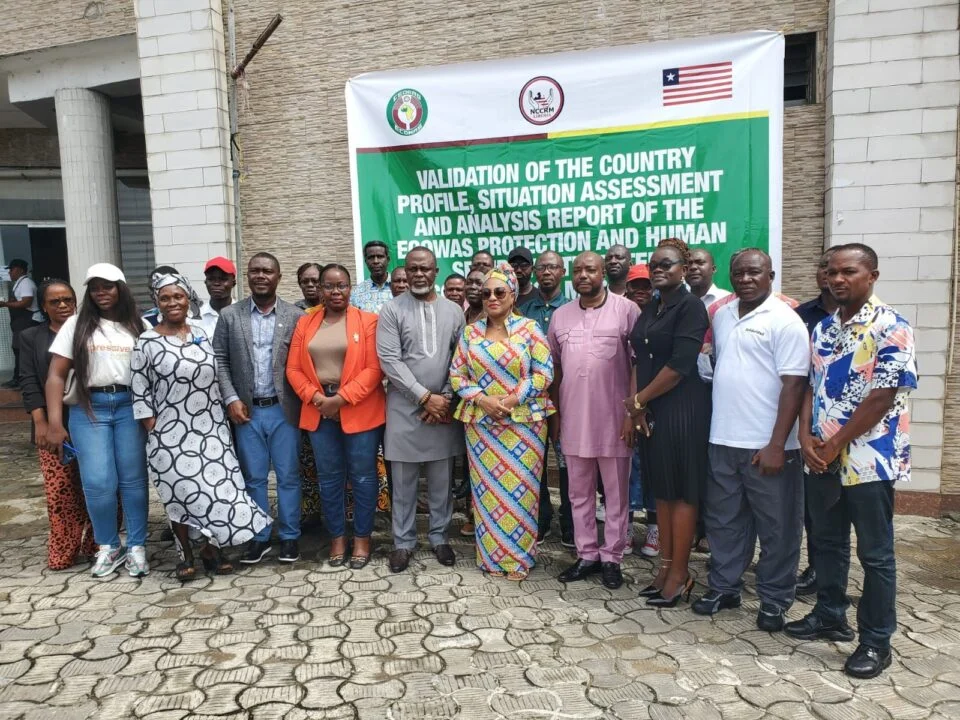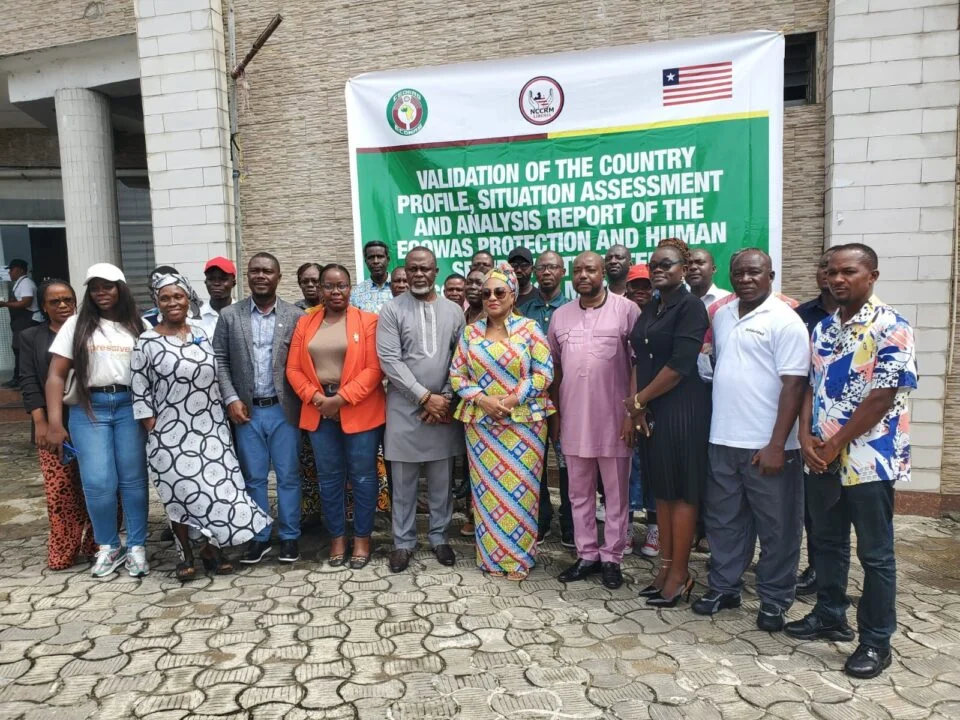ECO-PHYSICM Report Validated In Liberia … Stakeholders Urged to ‘Critically Interrogate’ National Protection Profile

The validation of Liberia’s National Protection and Human Security Profile took center stage on Friday, May 30, 2025 as stakeholders gathered in Monrovia to assess and finalize the long-awaited country assessment report under the ECOWAS Protection and Human Security Integrated Coordination Mechanism (ECO-PHSICM). The meeting, convened by the National Center for the Coordination of Response Mechanism (NCCRM) with support from ECOWAS, brought together security institutions, civil society, development partners, and government representatives to give critical input to the document which outlines Liberia’s protection and human security architecture, vulnerabilities, and policy gaps. Delivering opening remarks, ECOWAS Ambassador to Liberia, Josephine Nkrumah, urged participants not to see the workshop as just another routine event, but one that directly speaks to national survival and resilience.

“Whether it is us in our presence or people we are related to… the essence of ECO-PHSICM and today’s workshop is very important to all of us,” Ambassador Nkrumah declared. “This is about national security and human protection it is our collective responsibility.” Ambassador Nkrumah emphasized that the validation process is not just an administrative formality, but a strategic opportunity to unify institutional efforts around vulnerable populations. She highlighted the need to decentralize interventions through key actors like the Ministry of Internal Affairs, stressing that true protection only reaches the people when local structures are fully engaged. Amb. Nkrumah echoed the ECOWAS 50th anniversary theme — “Stronger Together for a Better Future” — reminding all that the power of integration lies not in theory, but in collective action. “ECOWAS is not an ECOWAS of states. It is an ECOWAS of the people,” she reiterated. “Let this process be about building a resilient society for all.” The draft report, produced by a national consultant, reflects a comprehensive examination of Liberia’s human security vulnerabilities—particularly for women, children, refugees, IDPs, and survivors of gender-based violence. While acknowledging existing frameworks and national policies, the report underscores persistent implementation gaps, institutional capacity deficits, and weak coordination among stakeholders.


